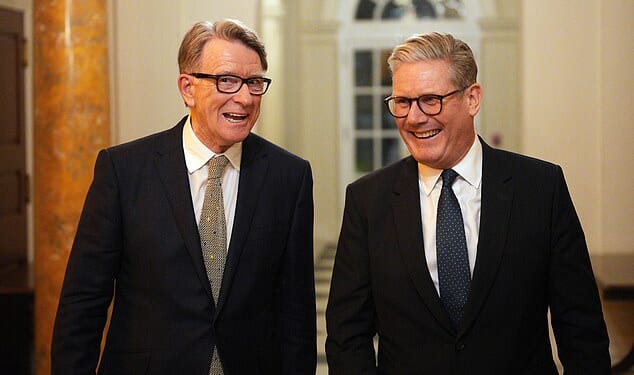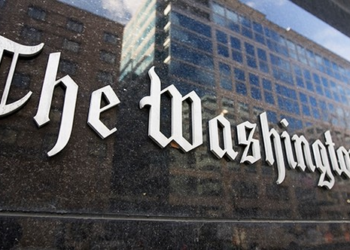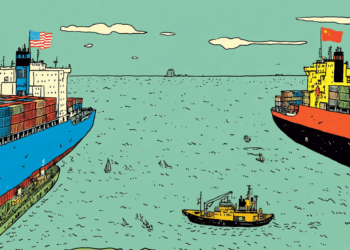A new left wing party is not necessarily earth-shattering news. These days especially, it’s a crowded field that includes the centrist Lib Dems, the watermelons in the Green Party, not to mention the left-leaning nationalist parties in Wales, Scotland and Northern Ireland. But the prospect of Zarah Sultana defecting from Labour to join Jeremy Corbyn and a group of independent Muslim MPs had the potential to be genuinely consequential. Corbyn, after all, is a politician with a large personal following who managed to get over 12 million people to vote for the Labour Party under his leadership. More than that, he is seen as a standard bearer for a dogged socialist authenticity at a time when the Labour Party has seriously alienated the most activist portions of the left.
It’s easy for conservatives to sneer at Glastonbury crowds going wild for Corbyn and Sultana, but those crowds have votes, and perhaps just as crucially, money to spend. In just under a week, over 600,000 people had signed up for its mailing list. With the ability to grab mainstream and online media attention, and a fervent potential membership base, the venture looked like it had real potential.
But what a difference a few weeks make. From the outset, this was a grouping with an identity crisis. Named simply “Your Party”, early ructions broke out between Sultana, a liberal secular progressive, and the Independent Alliance MPs Shockat Adam, Adnan Hussain, Ayoub Khan and Iqbal Mohamed. Following (very mild) comments by Hussain about trans women and biological women needing their own spaces, Sultana made public comments about her own unwavering support for trans rights, and asserted that “social conservatism” had no place in the new party. Online supporters of the party were queuing up to berate Adnan for being a “landlord” and a “social conservative”.
Not long thereafter, Sultana was in open conflict with the other MPs in the party over a membership sign up list she had sent out without consultation with or authorisation from the other members of the party’s leadership. Corbyn was calling for people not to sign up, and announced he was seeking legal advice. Sultana denounced the party as a “sexist boys’ club”, and claimed that she had initiated the membership portal because she had been “sidelined”.
Internal spats over power and purpose are common features of newly formed parties, but it’s striking to see it happen so quickly and on such a catastrophic scale. Why did things fall apart so quickly?
Your Party was a marriage between the disaffected left of the Labour Party, and a no less disaffected Muslim vote. On any number of core issues, these groups are deeply aligned. The focus on Palestine and the war in Gaza is a matter of equal fervour. A bigger state and less policing of protest are uncontroversial points of agreement. The difficulty has come over social issues. This has been a long time coming: The Muslim community is perhaps the most socially conservative demographic in the country when it comes to individual attitudes and beliefs. But for years, those attitudes have not translated into votes. Conservatively-minded Muslims were content to be left alone, whilst progressive and secular Muslims tended to dominate the ranks of frontline politicians. The deep conservatism of Muslim and other minority ethnic groups was long obscured by the effective system of patronage which saw resources and political support delivered by the centre left, whilst the most westernised and liberal members of the community served as its representatives in public life.
Conversations about Muslim social attitudes invariably follow a script. First of all, it is racist and offensive to generalise, so expect proceedings to begin with a telling off. Then, you’ll be treated to a lecture on the great diversity and complexity of Muslim perspectives on sex and gender over the centuries, and how, mysteriously, “Victorian-era legislation” imposed by the British Empire is the source of homophobic laws and attitudes. You’ll be reminded that Muslims vote for progressive parties that support progressive laws. And, finally, you’ll hear about how Muslims are a vulnerable minority group subject to hateful bigotry, and whose private religious views should be respected.
This framing of the question has proved acceptable to both sides of the secular-Muslim divide on the left. Muslims can lobby aggressively for legal protections and foreign policy priorities, and can quietly get on with their (generally very conservative) religious and cultural practices, without rocking the left liberal boat.
But that may be changing. A more grassroots Muslim politics, no longer managed by “community leaders” and the Labour party machine, will give rise to leaders more comfortable with openly asserting their social conservatism. Like African Americans and the Democratic Party in America, heightened progressive rhetoric about race may be covering up a growing divergence over fundamental issues. It isn’t just that Muslims are moving slowly out of the progressive tent — there’s also a strong element of their being pushed out by a more aggressive and extreme liberalism.
It isn’t just that Muslims are moving slowly out of the progressive tent — there’s also a strong element of their being pushed
It should be obvious why a devout Muslim politician, even a relatively progressive one, would have considerable reservations about the prospect of biological males entering women’s spaces. Islamic norms about modesty, education and worship are fundamentally incompatible with these novel ideas about gender. In many respects, the trans rights agenda is a far bigger challenge than questions like abortion or same sex marriage. Whilst conservative Muslims can simply live under their own moral norms, equalities laws could force Muslim women to share intimate spaces with men — live and let live is not an option.
Even as progressive norms have become more intrusive into the lives of Muslim communities, progressive politicians have become less tolerant of dissent and nuance. Even the very mild and intuitively obvious observation by Hussain that trans women are biological males was enough to provoke mass condemnation by activists and help spark a rift with his secular colleague.
Strikingly, in the space of dissident left politics, a socially conservative socialism has proven an effective bridge between the old far left and Muslims. George Galloway’s string of opportunistic by-election upsets have come off the back of a charismatic and oddly old fashioned message of family values, class warfare and ethical foreign policy.
A rising strain of social conservatism in this Islamoleftist space is more complicated than Sultana’s allegation of an “old boys’ club”, however. Galloway’s disruption of the old Labour machine in Muslim communities involved mobilising Muslim women. The association of women with social liberalism, though now a dominant feature of British politics, is a relatively new phenomenon. For most of British post-war history, women voted Conservative, as well as being generally more religious and socially conservative. Young women in the Muslim world have been at the forefront of adopting the hijab, with high profile protests at bans on the veil in Arab universities led by devout young women.
Social conservatism is itself a crude metric to understand the shifting social attitudes of Muslims and their place in British politics. Rather than a universalistic belief system, what we observe in the most “conservative” Muslim communities are really deep-seated cultural practices about gender, sex, marriage and inheritance. Such communities neither expect nor seek to impose these standards of outsiders. Yet Islam itself is a philosophically sophisticated religion, shaped by the same Greco-Roman and Jewish sources as Christianity, with an intensely strong conception of a universal natural law.
There is then a very large divide between social conservative attitudes about sexuality and bioethics, and the cultural practices of cousin marriage, honour killings, female genital mutilation and so on. These practices are fundamentally incompatible with British society, yet a principled, even highly conservative Islam is not, any more than traditionalist Catholicism or Judaism.
British Muslims will face fundamental questions about their role in British society over the coming years. As Muslims begin to break out of the progressive nursery, a number of choices will present themselves. For years, progressives have encouraged Muslims to see themselves as a persecuted group who cannot be criticised or negatively engaged with. This has produced considerable backlash, but there will be great temptation to remain a perpetual in-group, continually shielding even the worst practices and most abusive members from public discussion. Such an approach is not incompatible with widespread secularisation, with Islam taking a backseat to Muslim identity politics.
Yet the cosy relationship between Muslims and the left will not be as tenable as before. Criticisms from the right will only intensify in the context of populism and nationalism, whilst the perpetual march towards ever more exacting and extreme progressive ideas will make a leftwards alignment ever harder. The likely future of business as usual is grim: Muslims will gradually secularise, whilst becoming inculcated in a culture of resentment and fear. Secular politics will become more polarised against them, only justifying the sense of grievance, and intensifying the social divide.
A more religiously sincere and culturally universalistic Muslim politics would offer a third option to the unhappy choice between ghettoisation or a loss of identity. Were the politics of ethnic self-interest to be left behind, new political possibilities would emerge. Many Muslims, in this context, might find their natural home on the right, or a socially conservative left.
Zia Yusuf is one such example: a public school boy who leads Reform’s Department of Government Efficiency and describes himself as a “Muslim patriot”. His high profile clash with a fellow Reform MP over the possibility of a burqa ban is a direct right wing parallel to Adnan Hussain’s difficulties with Sultana. Yet Yusuf has remained a prominent figure within Reform, and joined Nigel Farage on Monday to launch the party’s ambitious new plans to curb migration and scrap indefinite leave to remain. Ironically, a relatively pragmatic nationalist agenda may prove an easier fit for British Muslims than an increasingly dogmatic and faith-based progressive movement.












